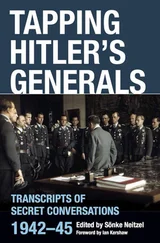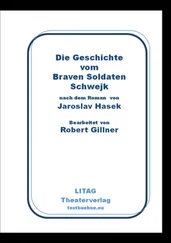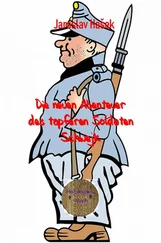Sönke Neitzel and Harald Welzer
SOLDATEN
On Fighting, Killing, and Dying
THE SECRET WORLD WAR II TRANSCRIPTS OF GERMAN POWs
Translated from the German by Jefferson Chase
Sönke Neitzel
It was a typical November day in England: a blanket of clouds, misty rain, eight degrees Celsius. As I’d often done before, I’d taken the District Line to Kew Gardens, getting out at the picturesque tube station in South London and hastening to the British national archives to immerse myself in old documents. The rain was even more unpleasant than usual and made me quicken my pace. As always, at the Archives entrance there was an impressive number of security personnel who gave my bag a cursory search. I passed by the small bookshop and went to the coatroom, then proceeded up the stairs to the reading room, where the garish green carpet convinced me that nothing had changed since the last time I’d been here.
In autumn 2001, I was working as a visiting lecturer at the University of Glasgow and was on a short visit to London. A few weeks previously, I had stumbled across Michael Gannon’s book about the turning point in the Battle of the Atlantic in May 1943. It contained several pages of minutes of discussions among German U-boat crewmen, and that had made me curious. I was aware of the existence of reports about interrogations of German POWs, but I had never heard anything about reports based on covert surveillance, and I wanted to follow up the lead. I wasn’t expecting anything much. What could such reports consist of? A couple of pages of random conversations, recorded by someone somewhere. Countless times before, promising indications of potential new sources had led to dead ends.
But this time it was different. At the desk I’d been assigned, I found a thick bundle of files, perhaps totaling eight hundred pages, held together only by a string. The thin sheets of paper were still immaculately organized. I had to be one of the first people to have ever held them in his hands. I glanced over seemingly endless protocols of German navy men, mostly U-boat crew members, transcribed word for word. If such reports existed for September 1943, I reasoned, there would have been similar ones for October and November 1943 as well. And what about the rest of the war? Indeed, as I discovered, there were thick bundles covering other months as well. Gradually, I realized that this was only the tip of the iceberg. In my excitement, I kept ordering more and more documents and found that not only submarine crews but captured members of the German air force and army had been subjected to covert surveillance as well. I delved into their conversations and was sucked in by the internal world of war that unfolded before me. You could practically hear the soldiers talking, gesticulating, and arguing among themselves. What most surprised me was how openly they talked about fighting, killing, and dying. I flew back to Glasgow with some interesting photocopied passages in my bag. The following day, I bumped into Professor Bernard Wasserstein at the Department of History and told him about my discovery. This was a brand-new source, I related, and would probably make a good topic for a dissertation for someone else. “You want to give it away?” he asked in amazement. The question burned itself into my head. He was right. I myself had to excavate this particular buried treasure.
I kept going back to London and gradually began to comprehend what I had stumbled upon. Over the course of the war, the British intelligence service had systematically subjected thousands of German and hundreds of Italian POWs to covert surveillance, recording passages from conversations they found particularly interesting on wax records and making protocols of them. The protocols had survived the war in their entirety and had been declassified in 1996. But in the years that followed, no one had recognized their value as historical source material. Undiscovered, they were left hibernating on the archive shelves.
In 2003, I published the first excerpts, and two years later a book edition followed containing some two hundred protocols from conversations among German generals. But I had still only made scant progress in evaluating and interpreting this source material. A short time later, I discovered a similar collection of material—some 100,000 pages’ worth, twice as extensive as the British files—in the National Archives in Washington, D.C. It was clear that there was no way I could process this seemingly infinite quantity of material on my own.
Harald Welzer
I was speechless when Sönke Neitzel called me and told me about the source material he had found. Previously we had been forced to base our research on perceptions of violence and the willingness to kill on very problematic sources: official investigations, letters from the field, eyewitness reports, and memoirs. The shortcoming of all these statements, reports, and descriptions was that they were consciously composed and addressed to someone specific: a prosecutor, a wife at home, or an audience the authors wanted to win over. When POWs spoke among themselves in the camps, they did so without any such agenda. None of them ever imagined that the stories they told would become a “source,” to say nothing of being published. Moreover, with investigations, autobiographies, and interviews with historical witnesses, the people concerned know how a period of history has turned out, and that ex post facto knowledge obscures how they experienced and saw things at the time. In Sönke Neitzel’s sources, men were talking live, in real time, about the war and their attitudes toward it. It was a discovery that would give unique, new insight into the mentality of the Wehrmacht and perhaps of the military in general. I was electrified, and we agreed to meet immediately. It was obvious that as a social psychologist without a profound knowledge of the Wehrmacht, I would never be able to interpret the material historically. Conversely, someone with a purely historical perspective would never be able to decode all the communicative and psychological aspects of the protocols. Both Sönke Neitzel and I had worked intensively on the Third Reich, yet we viewed the dialogues among the POWs from very different perspectives. Only by combining our disciplines, social psychology and history, would we be able to do justice to the material as a source for reconstructing a particular mentality and arrive at a revised perspective on soldiers’ behavior. We were then able to convince the Gerda Henkel Foundation and the Fritz Thyssen Foundation to support our attempts to start a major new research project. Not long after our initial meeting, we had the financial means to put together a research team to immediately tackle this mind-boggling amount of material. {1} 1 The research group worked under the direction of Dr. Christian Gudehus and consisted of Dr. Amedeo Osti Guerrazzi, Dr. Felix Römer, Dr. Michaela Christ, Sebastian Groß, and Tobias Seidl. More detailed analyses can be found in Harald Welzer, Sönke Neitzel, and Christian Gudehus, eds., “Der Führer war wieder viel zu human, viel zu gefühlvoll!” (Frankfurt/Main: Fischer, 2011).
We were able to digitalize all of the British documents and most of the American material and sort through it with the help of content-recognition software. Now, after three years of work, in which we learned a lot that was new and in which we were forced to question a number of truisms our sources failed to bear out, it is time to present the first results of our research.
In the excerpts from the surveillance protocols, British and American intelligence agencies used parentheses to indicate omissions. They also indicated garbled names and places with question marks. Authors’ clarifications are indicated with brackets.
Читать дальше












